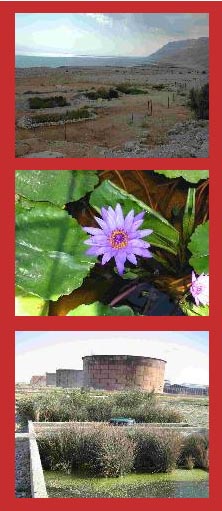

Approach

Our Water & Ecology's approach can be described with the saying of the 17th century English philosopher, Francis Bacon:
"Nature to be commanded, must be obeyed"
This basic philosophy which accompanied humans since the dawn of our creation, and has been described in different versions in many cultures, has vanished from our awareness throughout the last century due to the rapid development of new technologies.
Rapid development along with the continuous introduction of numerous manmade contaminants have caused a continuous destruction of natural habitats and ecosystems, leading to unstable localized environments that cannot recover on their own, eventually adding up to have a global effect.
Around the world, governments are raising the standards for discharging and allowing re-use of treated wastewater for new as well as existing facilities. Conventional wastewater treatment technologies offer partial solutions for both water shortage and pollution. Activated sludge and desalination are the methods most commonly used for preserving the fresh water reservoirs. These technologies purify wastewater to some extent in order to enable re-use for agricultural irrigation and landscaping.
However, in the short run as well as the long run, both methods damage the environment: the end products either still contain various levels of hazardous pollutants such as hormones and pharmaceuticals (activated sludge systems) or lack essential macro and micro elements (desalination). In both cases the damage to the soil and living organisms is not yet fully predicted or understood. In addition, these energy consuming technologies also contribute to global warming and create by-products such as used membranes and sludge. These require expensive manpower for maintenance, are hazardous, and lower the value of local real estate due to the poor esthetics and odor from the facilities.
In the field of Ecology, the concept of sustainability describes how biological systems remain diverse and productive over time with no artificial assistance, powered by natural forces such as solar power and gravity. In nature, such systems exist and evolve as needed in order to maintain the balance between neighboring ecological systems. A sustainable system is a powerful living organism that can withstand extreme fluctuation and last for many years.
Natural Biological Systems (NBS) are a practical, on-site method to implement this concept for simultaneous purification of soil, water and air. This complex and modular system is applicable to practically all pollutant sources (urban/ sanitary, agricultural and industrial, lake and river rehabilitation etc.) and in all climatic and environmental conditions. It relies on phytotechnology, and is based on the activity of plants together with microorganism communities in the root zone. Together they degrade, accumulate, extract, and volatilize contaminants of all kinds in water, soil and the air, resulting in clean and purified outflow.
The NBS technology makes use of a range of natural elements such as plants with proven remediation abilities, sediments with different physical and chemical properties and various hydrology regimes. Each system is tailored to every case and its ecological conditions, using local natural and human resources and is designed to withstand extreme fluctuation, and to last forever. Down to earth landscaping design is used to accommodate the systems to human, habitat and community needs.
The NBS systems have many proven advantages:
Phone: (91-22) - 4047 3800 / 6691 6206 / 2687 3930 E-Mail: admin@technochemgroup.com